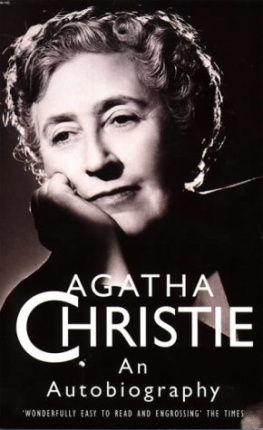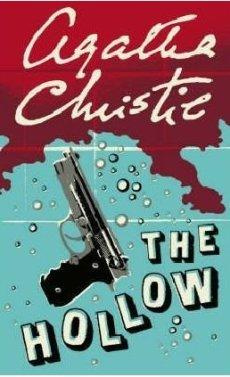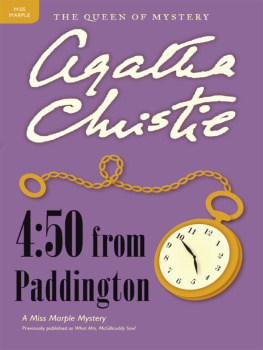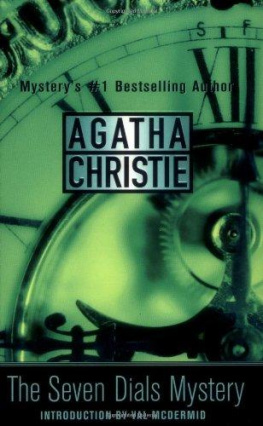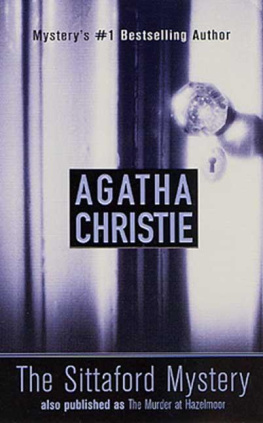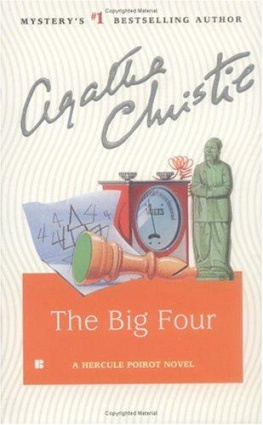Agatha Christie - The Mirror Crack'd from Side to Side
Here you can read online Agatha Christie - The Mirror Crack'd from Side to Side full text of the book (entire story) in english for free. Download pdf and epub, get meaning, cover and reviews about this ebook. genre: Detective and thriller. Description of the work, (preface) as well as reviews are available. Best literature library LitArk.com created for fans of good reading and offers a wide selection of genres:
Romance novel
Science fiction
Adventure
Detective
Science
History
Home and family
Prose
Art
Politics
Computer
Non-fiction
Religion
Business
Children
Humor
Choose a favorite category and find really read worthwhile books. Enjoy immersion in the world of imagination, feel the emotions of the characters or learn something new for yourself, make an fascinating discovery.

- Book:The Mirror Crack'd from Side to Side
- Author:
- Genre:
- Rating:5 / 5
- Favourites:Add to favourites
- Your mark:
- 100
- 1
- 2
- 3
- 4
- 5
The Mirror Crack'd from Side to Side: summary, description and annotation
We offer to read an annotation, description, summary or preface (depends on what the author of the book "The Mirror Crack'd from Side to Side" wrote himself). If you haven't found the necessary information about the book — write in the comments, we will try to find it.
The Mirror Crack'd from Side to Side — read online for free the complete book (whole text) full work
Below is the text of the book, divided by pages. System saving the place of the last page read, allows you to conveniently read the book "The Mirror Crack'd from Side to Side" online for free, without having to search again every time where you left off. Put a bookmark, and you can go to the page where you finished reading at any time.
Font size:
Interval:
Bookmark:
Agatha Christie
The Mirror Crack'd from Side to Side
Out flew the web and floated wide;
The mirror crack'd from side to side:
"The curse is come upon me," cried
The Lady of Shalott
Chapter 1
I
Miss Jane Marple was sitting by her window. The window looked over her garden, once a source of pride to her. That was no longer so. Nowadays she looked out of the window and winced. Active gardening had been forbidden her for some time now. No stooping, no digging, no planting at most a little light pruning. Old Laycock who came three times a week, did his best, no doubt. But his best, such as it was (which was not much) was only the best according to his lights, and not according to those of his employer. Miss Marple knew exactly what she wanted done, and when she wanted it done, and instructed him duly. Old Laycock then displayed his particular genius which was that of enthusiastic agreement and subsequent lack of performance.
'That's right, missus. We'll have them mecosoapies there and the Canterburys along the wall and as you say it ought to be got on with first thing next week.'
Laycock's excuses were always reasonable, and strongly resembled those of Captain George's in Three Men in a Boat for avoiding going to sea. In the captain's case the wind was always wrong, either blowing offshore or in shore, or coming from the unreliable west, or the even-more treacherous east. Laycock's was the weather. Too dry too wet waterlogged a nip of frost in the air. Or else something of great importance had to come first (usually to do with cabbages or brussels sprouts of which he liked to grow inordinate quantities). Laycock's own principles of gardening were simple and no employer, however knowledgeable, could wean him from them.
They consisted of a great many cups of tea, sweet and strong, as an encouragement to effort, a good deal of sweeping up of leaves in the autumn, and a certain amount of bedding out of his own favourite plants, mainly asters and salvias to 'make a nice show', as he put it, in summer. He was all in favour of syringeing roses for green-fly, but was slow to get around to it, and a demand for deep trenching for sweet peas was usually countered by the remark that you ought to see his own sweet peas! A proper treat last year, and no fancy stuff done beforehand.
To be fair, he was attached to his employers, humoured their fancies in horticulture (so far as no actual hard work was involved) but vegetables he knew to be the real stuff of life; a nice Savoy, or a bit of curly kale; flowers were fancy stuff such as ladies liked to go in for, having nothing better to do with their time. He showed his affection by producing presents of the aforementioned asters, salvias, lobelia edging, and summer chrysanthemums.
'Been doing some work at them new houses over at the Development. Want their gardens laid out nice, they do. More plants than they needed so I brought along a few, and I've put 'em in where them old-fashioned roses ain't looking so well.'
Thinking of these things, Miss Marple averted her eyes from the garden, and picked up her knitting.
One had to face the fact: St Mary Mead was not the place it had been. In a sense, of course, nothing was what it had been. You could blame the war (both the wars) or the younger generation, or women going out to work, or the atom bomb, or just the Government but what one really meant was the simple fact that one was growing old. Miss Marple, who was a very sensible lady, knew that quite well. It was just that, in a queer way, she felt it more in St Mary Mead, because it had been her home for so long.
St Mary Mead, the old world core of it, was still there. The Blue Boar was there, and the church and the vicarage and the little nest of Queen Anne and Georgian houses, of which hers was one. Miss Hartnell's house was still there, and also Miss Hartnell, fighting progress to the last gasp. Miss Wetherby had passed on and her house was now inhabited by the bank manager and his family, having been given a face-lift by the painting of doors and windows a bright royal blue. There were new people in most of the other old houses, but the houses themselves were little changed in appearances since the people who had bought them had done so because they liked what the house agent called 'old world charm'. They just added another bathroom, and spent a good deal of money on plumbing, electric cookers, and dishwashers.
But though the houses looked much as before, the same could hardly be said of the village street. When shops changed hands there, it was with a view to immediate and intemperate modernization. The fishmonger was unrecognizable with new super windows behind which the refrigerated fish gleamed. The butcher had remained conservative good meat is good meat, if you have the money to pay for it. If not, you take the cheaper cuts and the tough joints and like it! Barnes, the grocer, was still there, unchanged, for which Miss Harmell and Miss Marple and others daily thanked Heaven. So obliging, comfortable chairs to sit in by the counter, and cosy discussions as to cuts of bacon, and varieties of cheese. At the end of the street, however, where Mr Toms had once had his basket shop stood a glittering new supermarket anathema to the elderly ladies of St Mary Mead.
'Packets of things one's never even heard of,' exclaimed Miss Hartnell. 'All these great packets of breakfast cereal instead of cooking a child a proper breakfast of bacon and eggs. And you're expected to take a basket yourself and go round looking for things it takes a quarter of an hour sometimes to find all one wants and usually made up in inconvenient sizes, too much or too little. And then a long queue waiting to pay as you go out. Most tiring. Of course it's all very well for the people from the Development -'
At this point she stopped.
Because, as was now usual, the sentence came to an end there. The Development, Period, as they would say in modern terms. It had an entity of its own, and a capital letter.
II
Miss Marple uttered a sharp exclamation of annoyance. She'd dropped a stitch again. Not only that, she must have dropped it some time ago. Not until now, when she had to decrease for the neck and count the stitches, had she realized the fact. She took up a spare pin, held the knitting sideways to the light and peered anxiously. Even her new spectacles didn't seem to do any good. And that, she reflected, was because obviously there came a time when oculists, in spite of their luxurious waiting-rooms, the up-to-date instruments, the bright lights they flashed into your eyes, and the very high fees they charged, couldn't do anything much more for you. Miss Marple reflected with some nostalgia on how good her eyesight had been a few (well, not perhaps a few) years ago. From the vantage-point of her garden, so admirably placed to see all that was going on in St Mary Mead, how little had escaped her noticing eye! And with the help of her bird glasses (an interest in birds was so useful!) she had been able to see She broke off there and let her thoughts run back over the past. Ann Protheroe in her summer frock going along to the Vicarage garden. And Colonel Protheroe poor man a very tiresome and unpleasant man, to be sure but to be murdered like that She shook her head and went on to thoughts of Griselda, the vicar's pretty young wife. Dear Griselda such a faithful friend a Christmas card every year. That attractive baby of hers was a strapping young man now, and with a very good job. Engineering, was it? He always had enjoyed taking his mechanical trains to pieces. Beyond the Vicarage, there had been the stile and the field path with Farmer Giles's cattle beyond in the meadows where now now
The Development.
And why not? Miss Marple asked herself sternly. These things had to be. The houses were necessary, and they were very well built, or so she had been told. 'Planning,' or whatever they called it. Though why everything had to be called a Close she couldn't imagine. Aubrey Close and Longwood Close, and Grandison Close and all the rest of them. Not really Closes at all. Miss Marple knew what a Close was perfectly. Her uncle had been a Canon of Chichester Cathedral. As a child she had gone to stay with him in the Close.
Font size:
Interval:
Bookmark:
Similar books «The Mirror Crack'd from Side to Side»
Look at similar books to The Mirror Crack'd from Side to Side. We have selected literature similar in name and meaning in the hope of providing readers with more options to find new, interesting, not yet read works.
Discussion, reviews of the book The Mirror Crack'd from Side to Side and just readers' own opinions. Leave your comments, write what you think about the work, its meaning or the main characters. Specify what exactly you liked and what you didn't like, and why you think so.

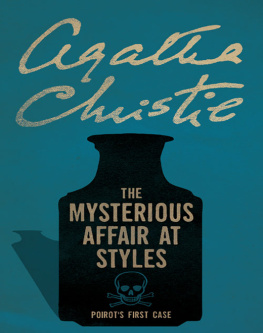
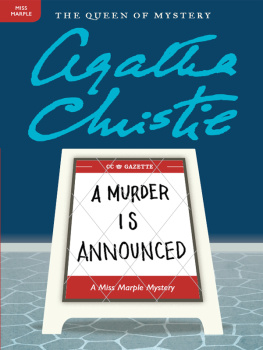
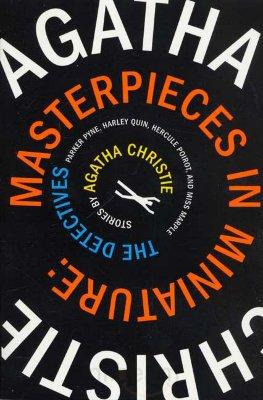
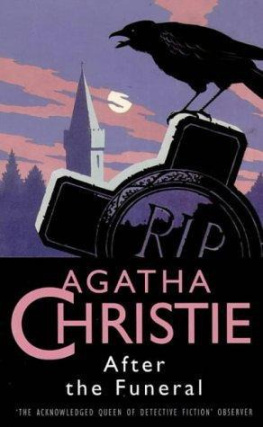
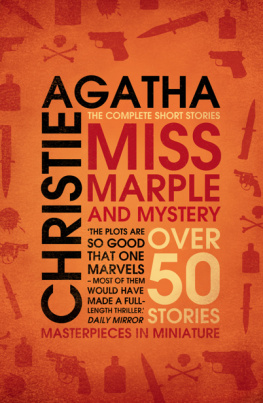
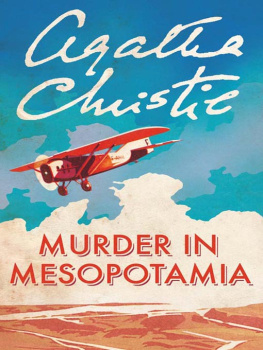

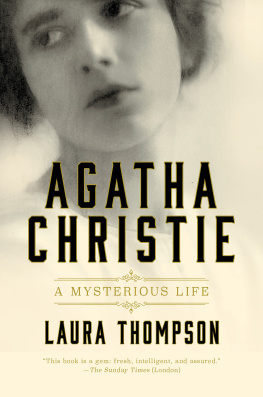

![Agatha Christie [Agatha Christie] - Problem at Pollensa Bay](/uploads/posts/book/140367/thumbs/agatha-christie-agatha-christie-problem-at.jpg)
